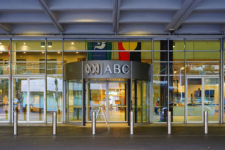ABC Loses Legal Challenge Against Police Raids

To the disappointment of many, the ABC has lost its legal challenge to controversial police raids on its Sydney newsroom last year.
In what can only be described as a massive blow for freedom of the press and healthy democracy, the national broadcaster has lost its legal challenge against the Australian Federal Police.
Last year after its Sydney offices were raided, as AFP offices searched for evidence to prove that ABC journalist Dan Oakes had committed criminal offences including receiving stolen goods and unlawfully obtaining military information in the course of producing a story on unlawful killings by Australian special forces in Afghanistan, the ABC launched a legal challenge in the federal court to challenge the legality of the search warrant.
The warrant enabled the Australian Federal Police (AFP) to search for, and record, fingerprints found at the premises and to take samples from the ABC for ‘forensic purposes’ as well as to ‘add, copy, delete or alter other data … found in the course of a search’.
The ABC subsequently sought a declaration from the Federal Court that the warrant was invalid, and that the search and seizure of more than 80 items relating to the Afghan Files was unlawful. It also sought an injunction restraining the AFP from accessing any of the seized materials. It’s argument was that the raid breached an implied constitutional right for free speech on political matters.
As such this was a significant case for journalists around the nation. Media around the world stood in both solidarity and shock as freedom of the press came under significant threat, and along with it, a big kick in the guts for healthy democracy.
In the AFP’s defence it alleged the stories and reporters at the centre of its searches had breached national security laws, despite the fact that the stories had, in fact, been broadcast three years earlier.
And in fact, the law ruled on the side of the AFP. Since 9/11 the Australian government has introduced a range of new national security laws. Many of these actually seek to silence whistleblowers and anyone critical of the government. David McBride, one of the key sources of information for the ABC story is facing life behind bars for providing information to journalists.
The federal court ruled that “the purpose of the warrant in this case was entirely legitimate” as police had been investigating “valid” national security offences.
The court also said the few legal protections for journalists’ sources were not applicable in this case.
This sets a dangerous precedent for anyone working in the media as well as for the media consuming public because if journalists find themselves under threat of prosecution for doing their jobs – brining information into the public domain where it can be validated, debated and discussed – then all that’s left is PR spin, or propaganda – messages that are not put under any kind of scrutiny.
And this doesn’t just apply to information circulated by governments, it applies to information provided by big corporations and other organisations too.
The decision highlights the serious problems with Australia’s national security laws, some of which have been reviewed by the Australian Law Reform Commission. But while the commission can make assessments and recommendations, it has no power to enforce laws to be changed.
Police have still not ruled out prosecuting individual journalists Sam Clarke and Dan Oakes over their stories. It’s entirely possible they will prosecute Newscorp journalist Annika Smethurst for a story she wrote in 2018 exposing government intentions to spy on citizens. Her home was raided by the AFP the day before the ABC head offices.
Last year, in the wake of the raids, Australia dropped two places in the World Press Freedom Index, ranking just 21st out of 177 nations who participate. At the time, it was noted that our investigative journalism had been reduced due to “draconian legislation”.







